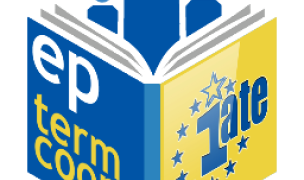 13 Terms
13 TermsHome > Terms > English, UK (UE) > Charles Lamb
Charles Lamb
(1775-1834) Essayist and poet, was born in London, his father being confidential clerk to Samuel Salt, one of the benchers of the Inner Temple. After being at a school in the neighbourhood, he was sent by the influence of Mr. Salt to Christ's Hospital, where he remained from 1782-89, and where he formed a lifelong friendship with Coleridge. He was then for a year or two in the South Sea House, where his elder brother John was a clerk. Thence he was in 1792 transferred to the India House, where he remained until 1825, when he retired with a pension of two-thirds of his salary. Mr. Salt died in 1792, and the family, consisting of the father, mother, Charles, and his sister Mary, ten years his senior, lived together in somewhat straitened circumstances. John, comparatively well off, leaving them pretty much to their own resources. In 1796 the tragedy of L.'s life occurred. His sister Mary, in a sudden fit of insanity, killed her mother with a table-knife. Thenceforward, giving up a marriage to which he was looking forward, he devoted himself to the care of his unfortunate sister, who became, except when separated from him by periods of aberration, his lifelong and affectionate companion—the "Cousin Bridget" of his essays.
His first literary appearance was a contribution of four sonnets to Coleridge's Poems on Various Subjects (1796). Two years later he published, along with his friend Charles Lloyd, Blank Verse, the little vol. including The Old Familiar Faces, and others of his best known poems, and his romance, Rosamund Gray, followed in the same year. He then turned to the drama, and produced John Woodvil, a tragedy, and Mr. H., a farce, both failures, for although the first had some echo of the Elizabethan music, it had no dramatic force. Meantime the brother and sister were leading a life clouded by poverty and by the anxieties arising from the condition of the latter, and they moved about from one lodging to another. L.'s literary ventures so far had not yielded much either in money or fame, but in 1807 he was asked by W. Godwin (q.v.) to assist him in his "Juvenile Library," and to this he, with the assistance of his sister, contributed the now famous Tales from Shakespeare, Charles doing the tragedies and Mary the comedies. In 1808 they wrote, again for children, The Adventures of Ulysses, a version of the Odyssey, Mrs. Leicester's School, and Poetry for Children (1809). About the same time he was commissioned by Longman to edit selections from the Elizabethan dramatists. To the selections were added criticisms, which at once brought him the reputation of being one of the most subtle and penetrating critics who had ever touched the subject. Three years later his extraordinary power in this department was farther exhibited in a series of papers on Hogarth and Shakespeare, which appeared in Hunt's Reflector. In 1818 his scattered contributions in prose and verse were collected as The Works of Charles Lamb, and the favour with which they were received led to his being asked to contribute to the London Magazine the essays on which his fame chiefly rests. The name "Elia" under which they were written was that of a fellow-clerk in the India House. They appeared from 1820-25. The first series was printed in 1823, the second, The Last Essays of Elia, in 1833. In 1823 the L.'s had left London and taken a cottage at Islington, and had practically adopted Emma Isola, a young orphan, whose presence brightened their lives until her marriage in 1833 to E. Moxon, the publisher. In 1825 Lamb retired, and lived at Enfield and Edmonton. But his health was impaired, and his sister's attacks of mental alienation were ever becoming more frequent and of longer duration. During one of his walks he fell, slightly hurting his face. The wound developed into erysipelas, and he died on December 29, 1834. His sister survived until 1847.
- Part of Speech: noun
- Synonym(s):
- Blossary:
- Industry/Domain: Literature
- Category: General literature
- Company:
- Product:
- Acronym-Abbreviation:
Other Languages:
Member comments
Terms in the News
Featured Terms
phylum placozoa
Macroscopic, flattened marine animals, composed of ventral and dorsal epithelial layers enclosing ...
phylum cnidaria
Cnidarians. Hydras, hydroids, jellyfish, sea anemones, and corals. Free-swimming or sessile, with ...
share a term with millions
Share a term with millions of users around the world and increase your online visibility.Share a ...
oak
Genus native to the Northern Hemisphere with spirally arranged leaves, catkins for flowers and ...
Everest
The last but not least mount Everest. The Earth's highest mountain, with a peak at 8,848 metres ...
aglaonema
Genus of about 20 species of usually rhizomatous, evergreen perennials from tropical forest in Asia. ...
Robojelly
Robojelly is a hydrogen-powered robot desgined in the United States that moves through the water ...
Ferdinand Porsche
Ferdinand Porsche (3 September 1875 – 30 January 1951) was an Austrian-German automotive engineer ...
Marzieh Afkham
Marzieh Afkham, who is the country’s first foreign ministry spokeswoman, will head a mission in east ...
define1
Share a term with millions of users around the world and increase your online visibility.Share a ...
Contributor
Featured blossaries
Browers Terms By Category
- Human evolution(1831)
- Evolution(562)
- General archaeology(328)
- Archaeology tools(11)
- Artifacts(8)
- Dig sites(4)
Archaeology(2749) Terms
- Cables & wires(2)
- Fiber optic equipment(1)
Telecom equipment(3) Terms
- Automobile(10466)
- Motorcycles(899)
- Automotive paint(373)
- Tires(268)
- Vehicle equipment(180)
- Auto parts(166)
Automotive(12576) Terms
- General furniture(461)
- Oriental rugs(322)
- Bedding(69)
- Curtains(52)
- Carpets(40)
- Chinese antique furniture(36)
Home furnishings(1084) Terms
- Natural gas(4949)
- Coal(2541)
- Petrol(2335)
- Energy efficiency(1411)
- Nuclear energy(565)
- Energy trade(526)




